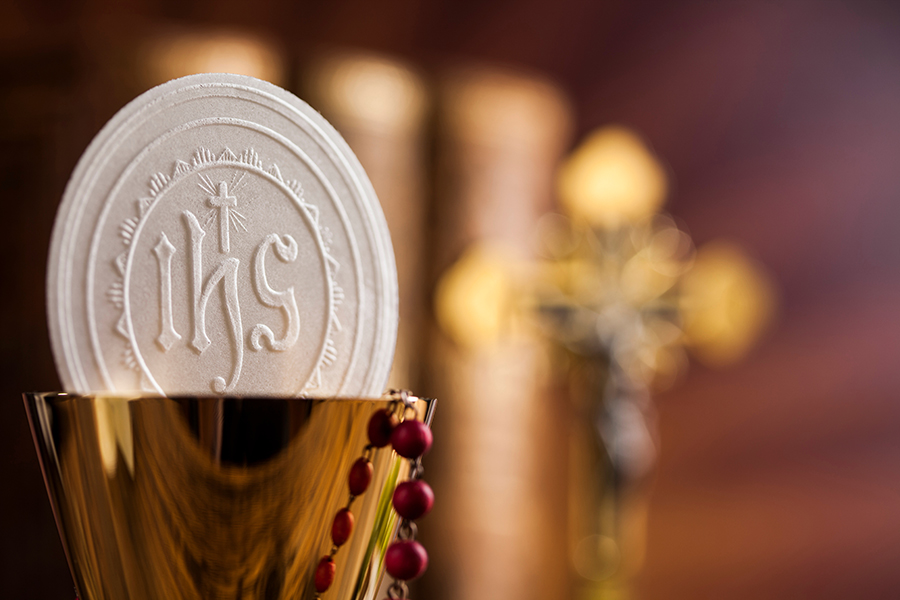
"You also must be prepared, for at an hour you do not expect, the Son of Man will come."
by Fr. Thomas Kagumisa | 08/07/2025 | Pastor's LetterIt is not uncommon to prepare yourself when you expect an important guest to visit your home. You may need to organize your living room, arrange the sofas properly, and remove any lingering pet hair if your furry friends tend to shed. Additionally, you might prepare a bedroom for your guest and plan a meal that is more impressive than your usual menu. Some hosts even go a step further and visit a barber shop or beauty salon to enhance their appearance.
While these preparations are often made to avoid embarrassment and ensure everything is presentable, they can also be done to create the impression that what your guest sees is typical of your everyday life. However, things can be quite different if the guest arrives unexpectedly. In such cases, when the host is caught off guard, the true state of their life is revealed.
While it's important to make extra efforts to honor our guests, it's equally essential to maintain a state of readiness in case someone drops by unexpectedly.
This is what Jesus refers to in this Sunday's gospel when he speaks allegorically about the men waiting for their master to return from a wedding feast. The passage highlights two perspectives on divine visitation: first, it pertains to the second coming of Christ, which will occur at an unknown time. As St. Matthew states, "Therefore, stay awake, for you know neither the day nor the hour" (25:13). Second, it relates to the moment when God will call each of us from this mortal life to eternity. That moment, too, is beyond our knowledge.
But how can we stay awake so that the Lord's coming does not catch us off guard? There are several ways to remain vigilant. First, we should aim for our Lord to find us with our work completed. For example, if you have started building a house, dedicate yourself to finishing it. If you are pursuing a diploma or degree, see it through to completion-don't drop out of school. If you have embarked on a career, fully engage in it until the end. If God calls you in the midst of your work, that is acceptable; it's not your fault. However, you don't want to leave behind a history of unfinished work without a good reason. Strive to echo the apostle Paul's words: "I have fought the good fight, I have finished the race" (2 Timothy 4:7-8).
As I write this, I feel as though I am addressing myself, as you have prepared important work for me to undertake, and the Bishop has assigned me to carry it out. This work refers to the recommendations highlighted in the 2024 research survey conducted by COSGRIFF Company.
Among other things, you wish to see your desire for religious education met adequately, to make a greater effort to attract more young people to our community, to revitalize the operations of parish finance and pastoral councils, to establish stronger social programs--the list goes on.
I hope and pray that God does not call me to eternity or that the Bishop does not transfer me from this parish before I complete this work. I would equally love to echo the words of the Apostle Paul: "I have fought the good fight; I have finished the race...."
Secondly, we hope that God finds us at peace with our fellow brothers and sisters. It would be a haunting experience to leave this mortal life with bitterness towards another person. The apostle Paul warns us, "If you are angry, let it be without sin; do not let the sun go down while you are still angry" (Ephesians 4:26). Reconciliation with our brothers and sisters is essential as we strive to stay awake and be prepared for the Lord's coming.
Thirdly, we should strive for God to find us at peace with Him. This will make a significant difference in the end when we can feel ourselves peacefully falling asleep in the arms of God, in a state of grace.
In other words, striving to be at peace with God and our fellow brothers and sisters involves going to Confession whenever we are conscious of grave sins. This is important because Confession reconciles us with God, our neighbors, and ourselves (CCC #1469).
Fourthly, we should regularly receive other sacraments, especially the Anointing of the Sick and Communion. The Anointing of the Sick has several important effects, including the grace of strengthening, peace, and courage to help overcome the challenges that come with serious illness or the frailty of old age. It strengthens the patient against the temptations of the Evil One, such as discouragement and anguish in the face of death. Additionally, it secures the forgiveness of sins if any have been committed and completes the patient's conformity to the death and Resurrection of Christ, just as Baptism initiates this process (CCC #1520). Therefore, it is important not to allow ourselves or our loved ones to depart from this life without receiving this sacrament, if circumstances permit.
Furthermore, receiving the Eucharist is a profound way to prepare ourselves for the coming of our Lord. Our Savior aptly declared, "Whoever eats my flesh and drinks my blood has eternal life, and I will raise him up on the last day" (John 6:54). However, it is essential to be spiritually disposed when receiving Jesus in the Eucharist; otherwise, the sacrament may have the opposite effect. The Apostle Paul warns us, "Therefore, whoever eats this bread or drinks this cup of the Lord in an unworthy manner will be guilty of the body and blood of the Lord" (1 Corinthians 11:27).
Let us continually use these means, so that when the Lord comes, He may find us vigilant.
In God's service and yours,
Fr. Thomas Kagumisa